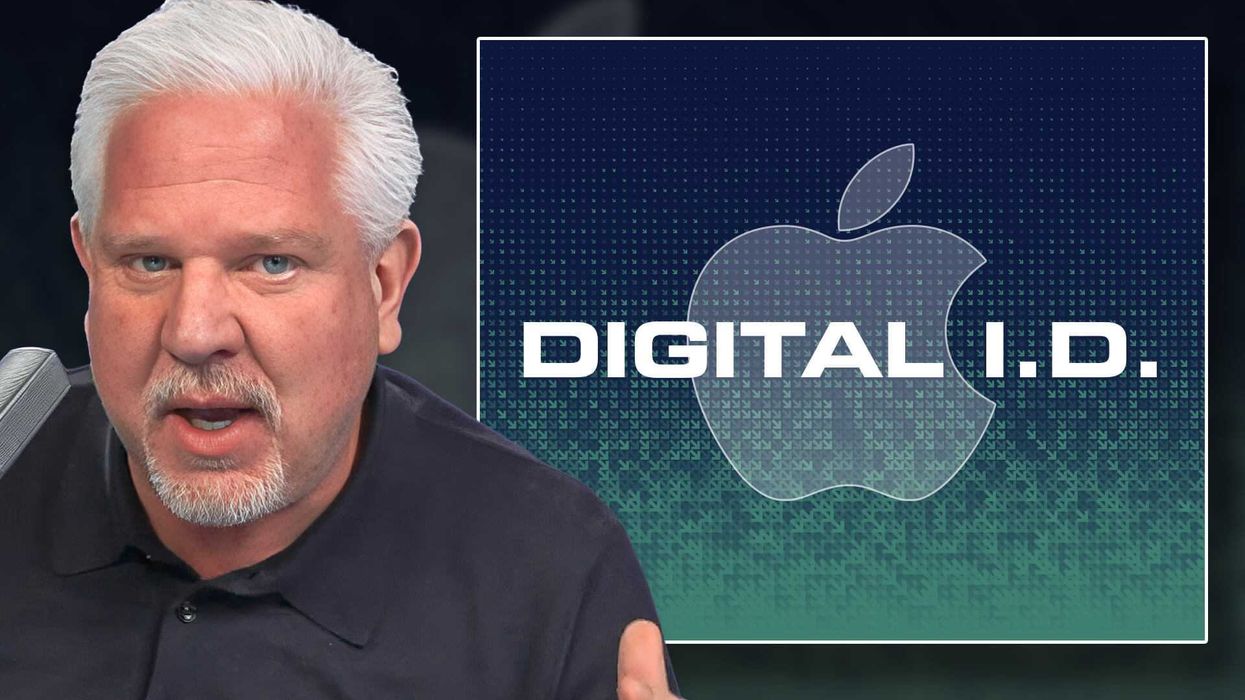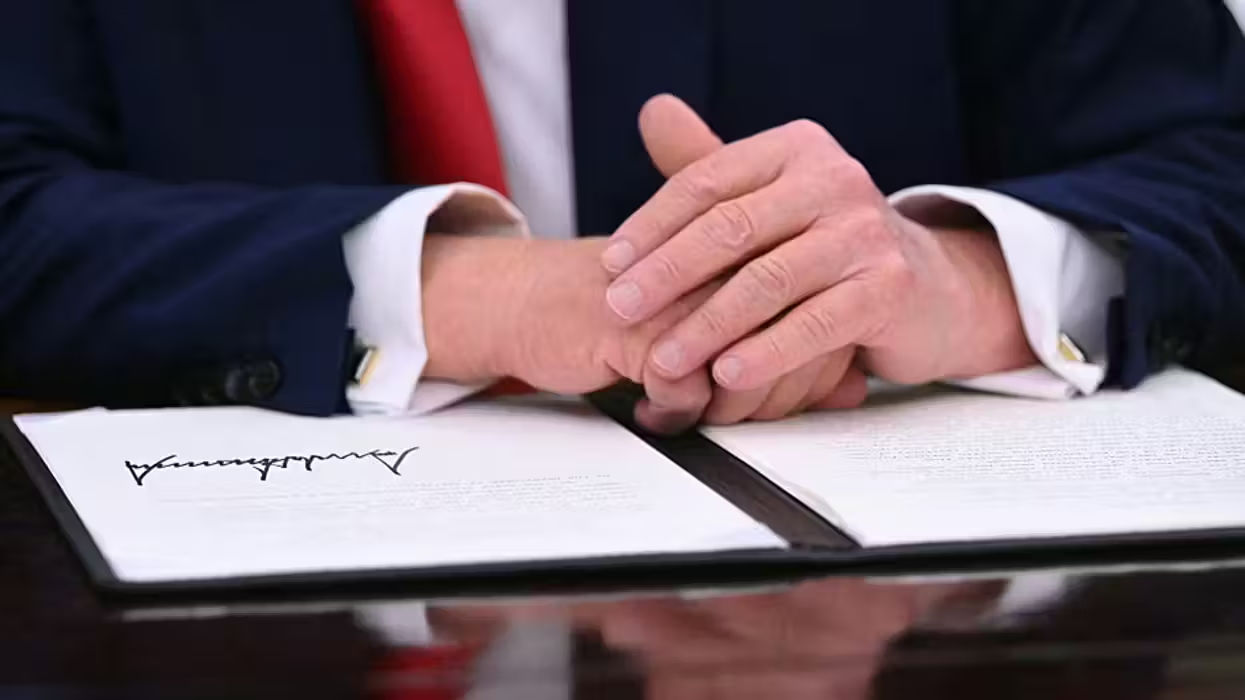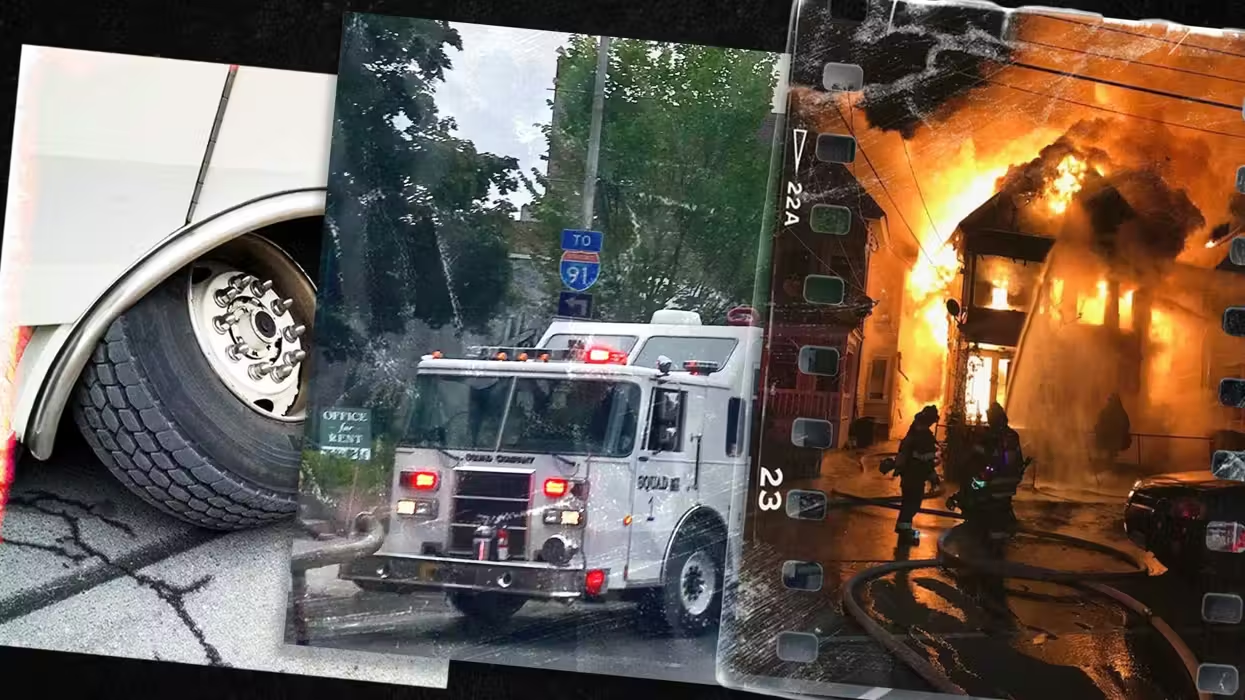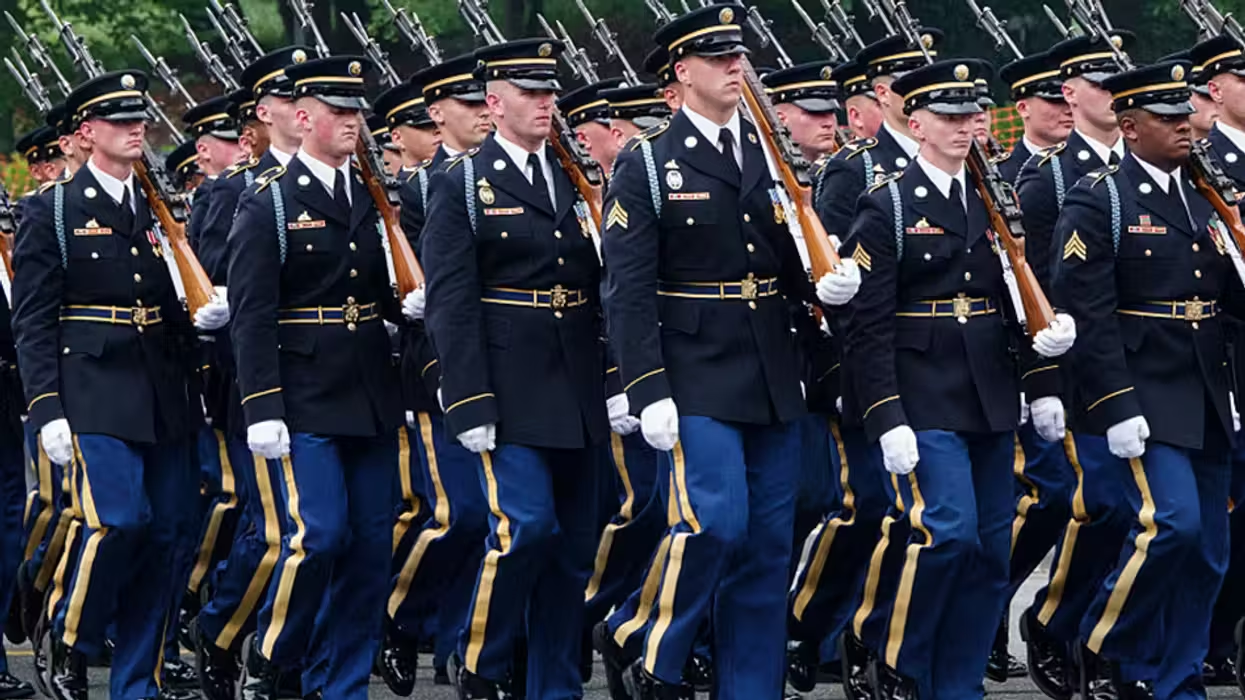
© 2025 Blaze Media LLC. All rights reserved.
"Since taking office in 2005 his policies have become something of a model for Republican governors nationwide."
For his final experiment in the conservative laboratory that is Indiana, Gov. Mitch Daniels is tinkering with a labor bill that could bring more jobs to the state, is guaranteed to bring massive labor protests to the Statehouse during the 2012 session and may temporarily shut down all other legislative business.
Before he leaves office in January 2013, Daniels will be pushing "right-to-work" legislation that would ban private companies and labor unions from negotiating contracts with mandatory labor fees.
Unsurprisingly, union leaders have vowed to fight the Indiana bill, which they say would turn the state into the “Mississippi of the Midwest,” by flooding the statehouse with thousands of protesters, according to the New York Times.
Many "right-to-work" supporters say it is immoral to compel workers -- whether they are willing or not -- to financially contribute to the unions. On the opposite side of the political spectrum, opponents of the "right-to-work" effort claim that it is wrong to allow “free riders” not to support the unions that "represent them in negotiations and arbitrations," reports the Times.
The measure spurred a five-week walkout by House Democrats that denied House Republicans the numbers needed to conduct daily business and could be repeated again.
House Minority Leader Patrick Bauer, D-South Bend, has declined to say whether Democrats will walk out again: "We don't have to make plans to do that, we have to react to what they're doing."
"Right-to-work" measures, if enacted and enforced, could carry serious financial consequences for unions.
"Corporations view such laws as an important sign that a state has policies friendly to business," writes the Times' Steven Greenhouse. "Labor leaders say that allowing workers to opt out of paying any money to the union that represents them weakens unions’ finances, bargaining clout and political power."
And Daniels administration safety officials, acting Friday in advance of the thousands of labor protesters expected to flood the Statehouse next week, capped the number of people who can occupy the building at 3,000.
 A protest at Indiana's statehouse last February over collective bargaining.
A protest at Indiana's statehouse last February over collective bargaining.
Leading the "right-to-work" charge, Brian C. Bosma, the Republican speaker of the Indiana House, says that not being a right-to-work state has been a serious deterrent in attracting businesses to Indiana.
“Local economic development officers testified that 25 to 50 percent of companies looking to create employment, whether through expansion or locating a new facility, just took Indiana and other non-right-to-work states off the table,” he said in an interview. “This is stopping employers from coming to Indiana. We need to deal with that.”
However, opponents of "right-to-work" measures argue that talk of improving Indiana’s business climate is just a "pretext."
“It’s a political attack on what the Republicans see as one of their main opponents — organized labor,” said Jim Robinson, the top United Steelworkers official in Indiana. “They want to weaken unions to help assure continued Republican majorities.”
John Sampson, president of the Northeast Indiana Regional Partnership, an economic development group, disagrees with their "pretext" argument.
Companies were "attracted to right-to-work states not because of lower wages but because the weakened role of unions means that companies get greater operating flexibility, which lowers their costs," Sampson said in a recent Associated Press report.
“Some people will say this is about bashing organized labor,” Mr. Sampson added. “From my point of view, there’s nothing better for labor than to create increased demand for jobs.”
Regardless of whether or not Daniels is successful in his attempts to make Indiana a "right-to-work" state, it cannot be argued that, since taking office in 2005, his policies have become something of a model for Republican governors nationwide.
"His actions in cancelling collective bargaining…have led a number of Republican governors to attempt the same thing," said Darrell West, vice president and director of governance studies for the Brookings Institution, a Washington-based think tank.
The Associated Press contributed to this report.
Want to leave a tip?
We answer to you. Help keep our content free of advertisers and big tech censorship by leaving a tip today.
Want to join the conversation?
Already a subscriber?
more stories
Sign up for the Blaze newsletter
By signing up, you agree to our Privacy Policy and Terms of Use, and agree to receive content that may sometimes include advertisements. You may opt out at any time.
Related Content
© 2025 Blaze Media LLC. All rights reserved.
Get the stories that matter most delivered directly to your inbox.
By signing up, you agree to our Privacy Policy and Terms of Use, and agree to receive content that may sometimes include advertisements. You may opt out at any time.






